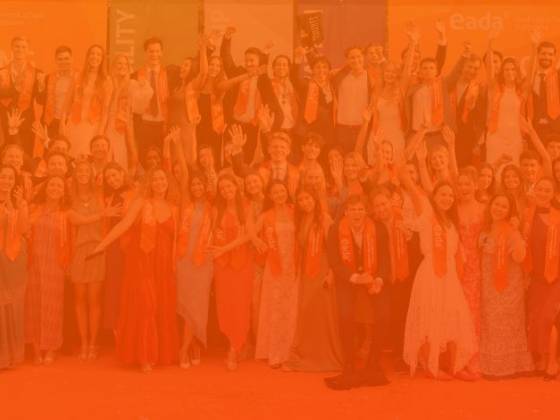EADA: Towards a model of sustainable and responsible leadership
 The latest Davos Forum has reopened the debate regarding a company’s purpose, its value proposition or reason why, as a project for social change. This idea goes beyond the logic of profit, although the two can be aligned, as it implies that a company’s objectives should be based on positive social and environmental impact. In other words, in the face of new social, economic and environmental challenges companies must be responsible for the global impact of their activities and commit to actions that have a positive impact in the sector they operate in.
The latest Davos Forum has reopened the debate regarding a company’s purpose, its value proposition or reason why, as a project for social change. This idea goes beyond the logic of profit, although the two can be aligned, as it implies that a company’s objectives should be based on positive social and environmental impact. In other words, in the face of new social, economic and environmental challenges companies must be responsible for the global impact of their activities and commit to actions that have a positive impact in the sector they operate in.
International experts are already talking about a new business paradigm whereby organisations not only need professionals with the right competencies and skills but they also need leaders who are committed to society, the environment, the economy, ethics and equal opportunities. It is what is termed sustainable and responsible leadership, in reference to leaders who contribute to building a better society and are capable of generating change and responding to new challenges.
This purpose must motivate all the teams in an organisation as well as others in the sector to form part of the solution rather than the problem, to all become agents of change that contribute to building a better society. For this to happen, it is essential that all stakeholders are involved in working towards the purpose, which will enable people to identify the purpose which represents them and move towards new styles and ways of relating to one another.
EADA’s sustainable leadership model
At EADA Business School we work with our own model of sustainable and responsible leadership with our participants, our Alumni community, corporations and companies that promotes values and practices based on a positive social and environmental impact. We strongly believe in the multiplier effect and the impact that current and future business leaders can create in society through this type of leadership, in both existing profit-driven companies and future purpose-driven organisations.
According to Jordi Díaz, Dean of EADA Business School, "we are immersed in a paradigm shift in which companies, organisations and their representatives must be aware of their professional responsibility to establish a set of sustainable and responsible strategies and practices."
EADA works to achieve this purpose in the following ways:
 -We train professionals and prepare organisations to achieve these standards with the aim of contributing to a fairer and more solidarity-based society. In the classroom, we select case studies that generate debate around current social and environmental issues. With the support of the United Nations, we have been applying the six Principles for Responsible Management Education (PRME) in all of our programmes since 2007. We also incorporate and disseminate the 10 principles of the Pacto Mundial Red Española. The learning model at EADA is based on 8 Sustainable Development Goals (SDGs): quality education, gender equality, decent work and economic growth, industry, innovation and infrastructure, reduced inequality, sustainable cities and communities, responsible consumption and production, partnerships to achieve the goals.
-We train professionals and prepare organisations to achieve these standards with the aim of contributing to a fairer and more solidarity-based society. In the classroom, we select case studies that generate debate around current social and environmental issues. With the support of the United Nations, we have been applying the six Principles for Responsible Management Education (PRME) in all of our programmes since 2007. We also incorporate and disseminate the 10 principles of the Pacto Mundial Red Española. The learning model at EADA is based on 8 Sustainable Development Goals (SDGs): quality education, gender equality, decent work and economic growth, industry, innovation and infrastructure, reduced inequality, sustainable cities and communities, responsible consumption and production, partnerships to achieve the goals.
-EADA is present in the rankings and volunteers to be assessed by new ratings and rankings that analyse our impact as a business school for the world. Two good examples of this can be seen in the Positive Impact Rating which rated EADA as one of the main ‘transforming’ schools, and the Better World Ranking MBA, which ranked EADA among the 40 best business schools in the world at number 35, as a result of integrating sustainable development into its MBA programmes, faculty research on sustainability issues and the gender and ethnical diversity of its faculty.
-EADA is one of 50 organisations that has signed the ‘Manifesto to legally recognize purpose-driven companies’, which was presented recently by Fundación B Lab Spain, one of the driving forces behind the #BCorp movement in Spain, and aims to officially recognize those companies that achieve the highest standards in terms of society, environment, transparency and good corporate governance.
-EADA works in partnership with both international and national organisations that create a positive social impact and we publish reports and studies of collective interest. Through our agreement with Fundación Ashoka Spain, we promote social innovation to solve challenges with changemakers who inspire others and change the world; in collaboration with the Centre for Ecological Research and Forestry Applications (CREAF) we have promoted initiatives based on research, dissemination and training in the classroom; in conjunction with École des Ponts Paris Business School we have launched the Global Executive MBA, which is a programme designed specifically for innovative and technological leaders and our agreement with ISDI has led to the launch of programmes which combine leadership and innovation. These include the Master in Fintech & Business Analytics and the Master in Digital Business.
 -At EADA, we help talented professionals to realize their purpose. Our programme of grants and scholarships provides access to training opportunities to those who most need it. An example of this is the package of grants included in The EADA Fund for Positive Impact, which aims to facilitate labour market access to those collectives most affected by the Covid-19 crisis. There are 6 projects to which we invite collaboration from individuals or companies: Covid-19 scholarships, Employability scholarships and Scholarship for women in Science and Technology, Re-Start scholarships for collectives affected by the pandemic to access Executive Education programmes, two SAP Women in Tech Scholarships for women under 30 to access the International Master in Marketing with professional opportunities in SAP Digital Sales and the Inbenta Scholarship for Talent for the Master in Fintech & Business Analytics EADA-ISDI with professional opportunities at Inbenta as a Digital Analyst.
-At EADA, we help talented professionals to realize their purpose. Our programme of grants and scholarships provides access to training opportunities to those who most need it. An example of this is the package of grants included in The EADA Fund for Positive Impact, which aims to facilitate labour market access to those collectives most affected by the Covid-19 crisis. There are 6 projects to which we invite collaboration from individuals or companies: Covid-19 scholarships, Employability scholarships and Scholarship for women in Science and Technology, Re-Start scholarships for collectives affected by the pandemic to access Executive Education programmes, two SAP Women in Tech Scholarships for women under 30 to access the International Master in Marketing with professional opportunities in SAP Digital Sales and the Inbenta Scholarship for Talent for the Master in Fintech & Business Analytics EADA-ISDI with professional opportunities at Inbenta as a Digital Analyst.


